A Summary of Title 5 Regulation Changes
The Problem: Nutrient Pollution from Septic Tanks on Cape Cod
The majority of homes on Cape Cod–more than 85%–use septic systems for wastewater treatment.
While septic systems do a good job of keeping wastewater out of sight and out of mind, they allow nutrient pollutants such as nitrogen and phosphorus to escape into the environment.
Once wastewater leaves a septic system, it moves quickly through Cape Cod’s sandy soils and into our ground and surface water resources.
With so many homes using septic, the environmental impacts are significant and include harmful algae blooms in ponds, thick muck at the bottom of bays, degradation of seagrass beds, declining shellfish harvests, and more. All of this leads to poor water quality and beach closures, which affect our tourism-based economy, recreation, our fisheries, and our property values.
Some towns have areas of critical environmental concern that are particularly susceptible to pollution from septic systems. These areas are referred to as designated nitrogen-sensitive natural resource areas or NRAs.
For many towns, sewering would be an effective solution to nutrient pollution. And while most towns have included sewering in their long-term wastewater plans, it’ll take years to implement. Our ecosystem needs a more immediate solution.
Our ecosystem needs a more immediate solution.

When Title 5 is Not Enough: The Solution from a Regulatory Standpoint
Title 5″ refers to the environmental code that regulates septic systems on Cape Cod. When Title 5 was implemented in 1995, the primary goal was to minimize public health risk. Unfortunately, septic systems were not designed to protect the environment from nutrient pollution.
On July 7th, 2023, changes were made to Title 5 (310 CMR 15.000) to better protect our waterbodies.
What does this mean? Well, like all things regulatory, it’s complicated. Here’s what it boils down to.
As implementation of the changes gets underway, Title five offers two choices by which to reduce nitrogen pollution:
- Towns can apply for a watershed permit, which provides them with the opportunity to think critically about nitrogen pollution and come up with a plan to reduce it creatively using various technologies and practices over the next 20 years.
- Towns can allow a mandatory septic upgrade to be imposed on homeowners who live in nitrogen- sensitive natural resources areas (NRAs). Under this scenario, homes would be required to replace existing septic systems with innovative/alternative (I/A) systems within five years. Visit MassDEP’s website for a list of I/A System Technologies.

Players and Timeline
Each town is different, which means the players and timeline will vary by town. The first point of contact would be your local health department. It’s also likely that town specific information will be posted on each town’s website. You can find links to your town’s website as well as your local health agent’s contact information at www.capecod.gov/towns.
Further Your Understanding of Title 5 Changes
Our staff at the Barnstable County Department of Health and Environment have put together a list of What If’s and Homeowner FAQs in their most recent newsletter, which we encourage you to read. As time passes, these documents will be updated to reflect communications from the state and towns, available resources, financial options and more.
